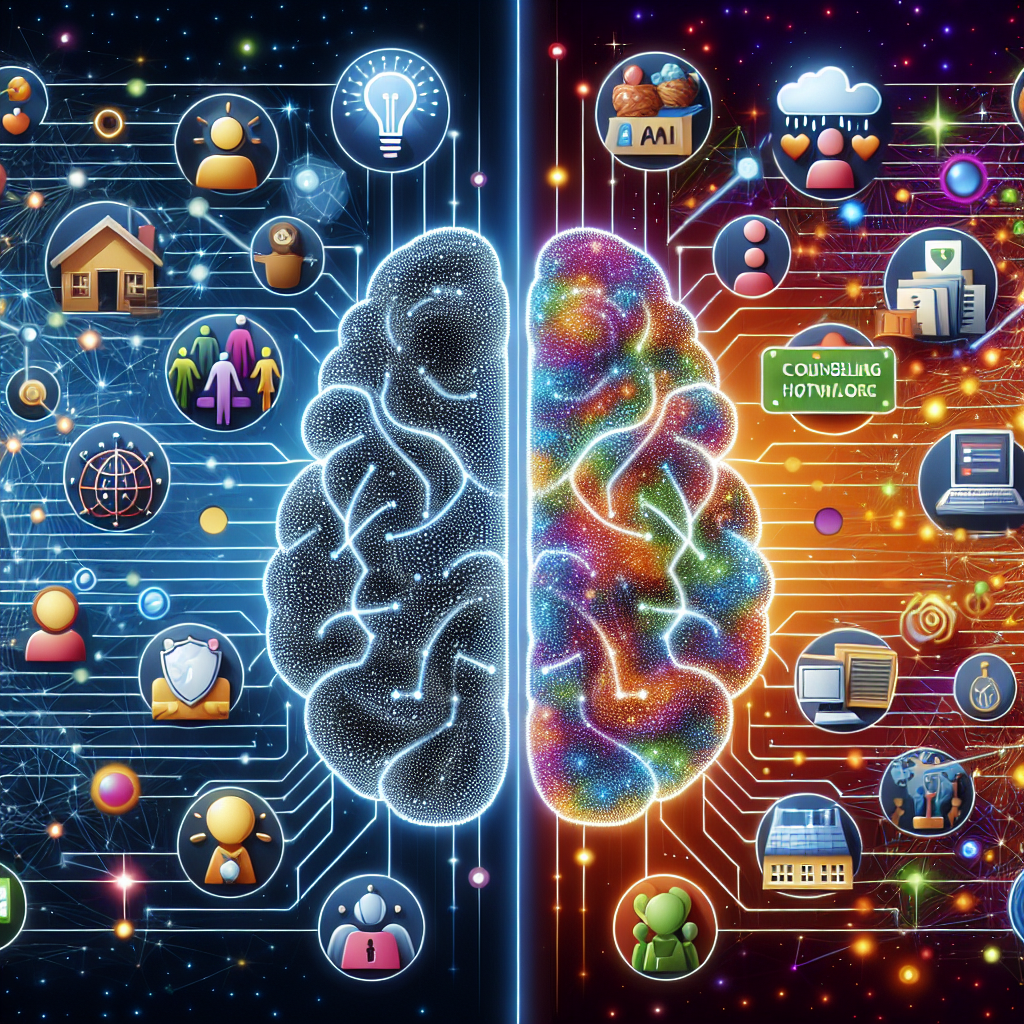Artificial intelligence (AI) is revolutionizing the way social services are provided, offering new tools and capabilities to enhance support services for vulnerable populations. From predictive analytics to chatbots, AI deployment in social services is improving efficiency, increasing accessibility, and ultimately, providing better outcomes for those in need.
One of the key areas where AI is making a significant impact is in predictive analytics. By analyzing vast amounts of data, AI algorithms can identify patterns and trends that can help social service agencies better predict and prevent crises before they occur. For example, AI can analyze a combination of demographic data, social media activity, and past service utilization to identify individuals who may be at risk of homelessness or substance abuse. By intervening early, social service agencies can provide the necessary support to prevent these crises from escalating.
Another way AI is enhancing support services in social services is through chatbots. These virtual assistants can provide immediate support and information to individuals in need, reducing the burden on human service providers and increasing accessibility for those who may not have access to traditional support services. Chatbots can answer common questions, provide resources, and even connect individuals to live support when needed. This can help reduce wait times, streamline communication, and ensure that individuals receive the help they need in a timely manner.
AI deployment in social services is also improving decision-making processes. By analyzing data and identifying patterns, AI algorithms can help social service agencies make more informed decisions about resource allocation, program effectiveness, and service delivery. For example, AI can analyze the outcomes of different intervention strategies to identify which approaches are most effective for specific populations. This can help agencies allocate resources more efficiently and ensure that individuals receive the most appropriate support for their needs.
However, with the benefits of AI deployment in social services also come challenges and considerations. Privacy concerns, bias in algorithms, and the potential for job displacement are all important factors that must be addressed when implementing AI in social services. It is essential that agencies ensure that data is being used ethically and responsibly, and that safeguards are in place to protect the privacy and rights of individuals receiving support services.
FAQs:
1. How is AI being used in social services?
AI is being used in social services to enhance support services through predictive analytics, chatbots, and improved decision-making processes.
2. What are the benefits of AI deployment in social services?
The benefits of AI deployment in social services include improved efficiency, increased accessibility, and better outcomes for vulnerable populations.
3. What are some challenges of AI deployment in social services?
Challenges of AI deployment in social services include privacy concerns, bias in algorithms, and the potential for job displacement.
4. How can agencies ensure that AI is being used ethically in social services?
Agencies can ensure that AI is being used ethically in social services by implementing safeguards to protect privacy and rights of individuals, and by regularly monitoring and evaluating AI systems for bias and fairness.
5. How can individuals access support services through AI?
Individuals can access support services through AI by using chatbots, virtual assistants, and online platforms that provide information, resources, and connections to live support when needed.
In conclusion, AI deployment in social services is transforming the way support services are provided, offering new tools and capabilities to enhance efficiency, accessibility, and outcomes for vulnerable populations. By harnessing the power of AI, social service agencies can better predict and prevent crises, provide immediate support through chatbots, and make more informed decisions about resource allocation and service delivery. However, it is important that agencies address challenges such as privacy concerns and bias in algorithms to ensure that AI is being used ethically and responsibly. With careful planning and implementation, AI has the potential to revolutionize social services and improve the lives of those in need.

